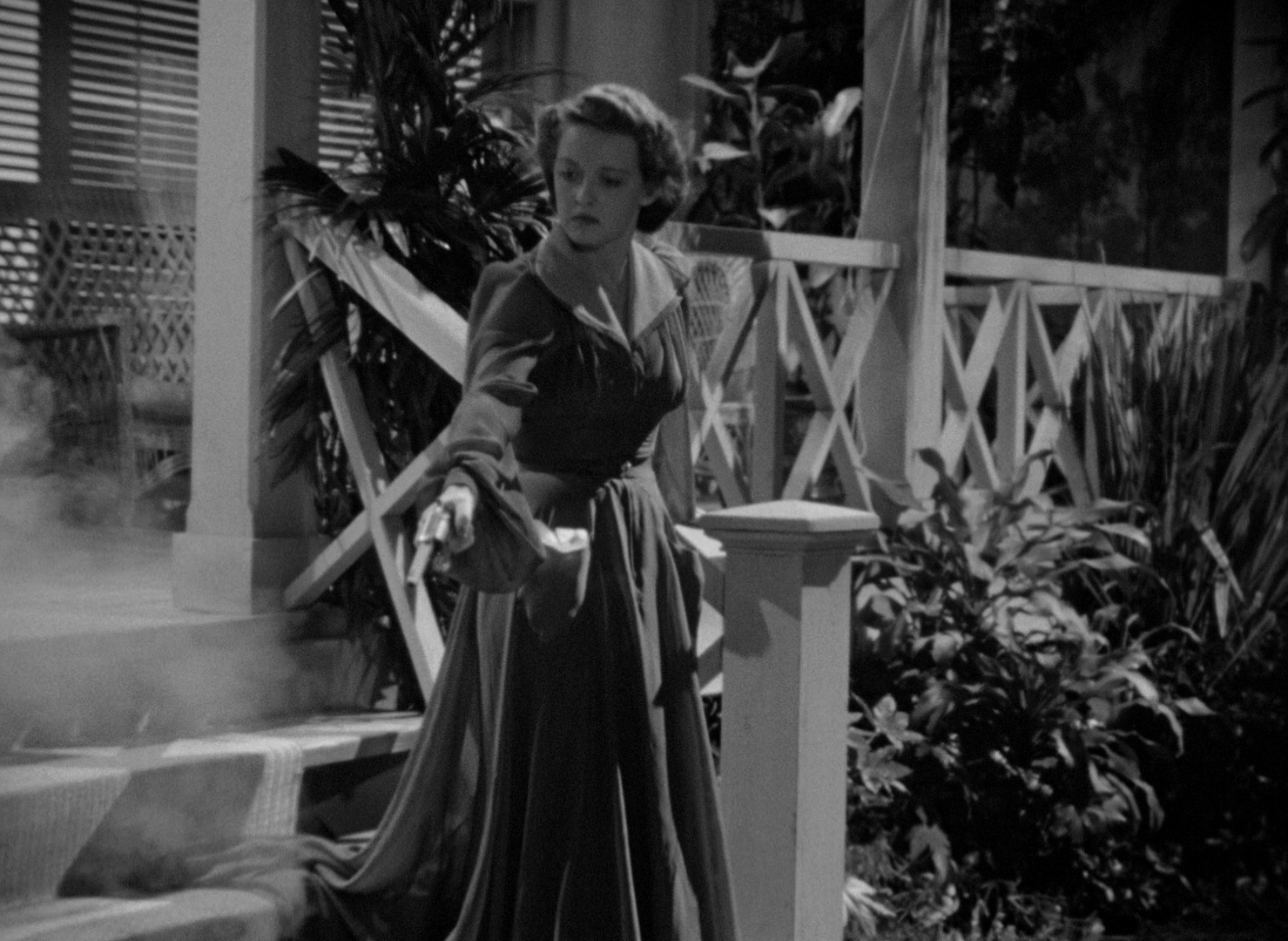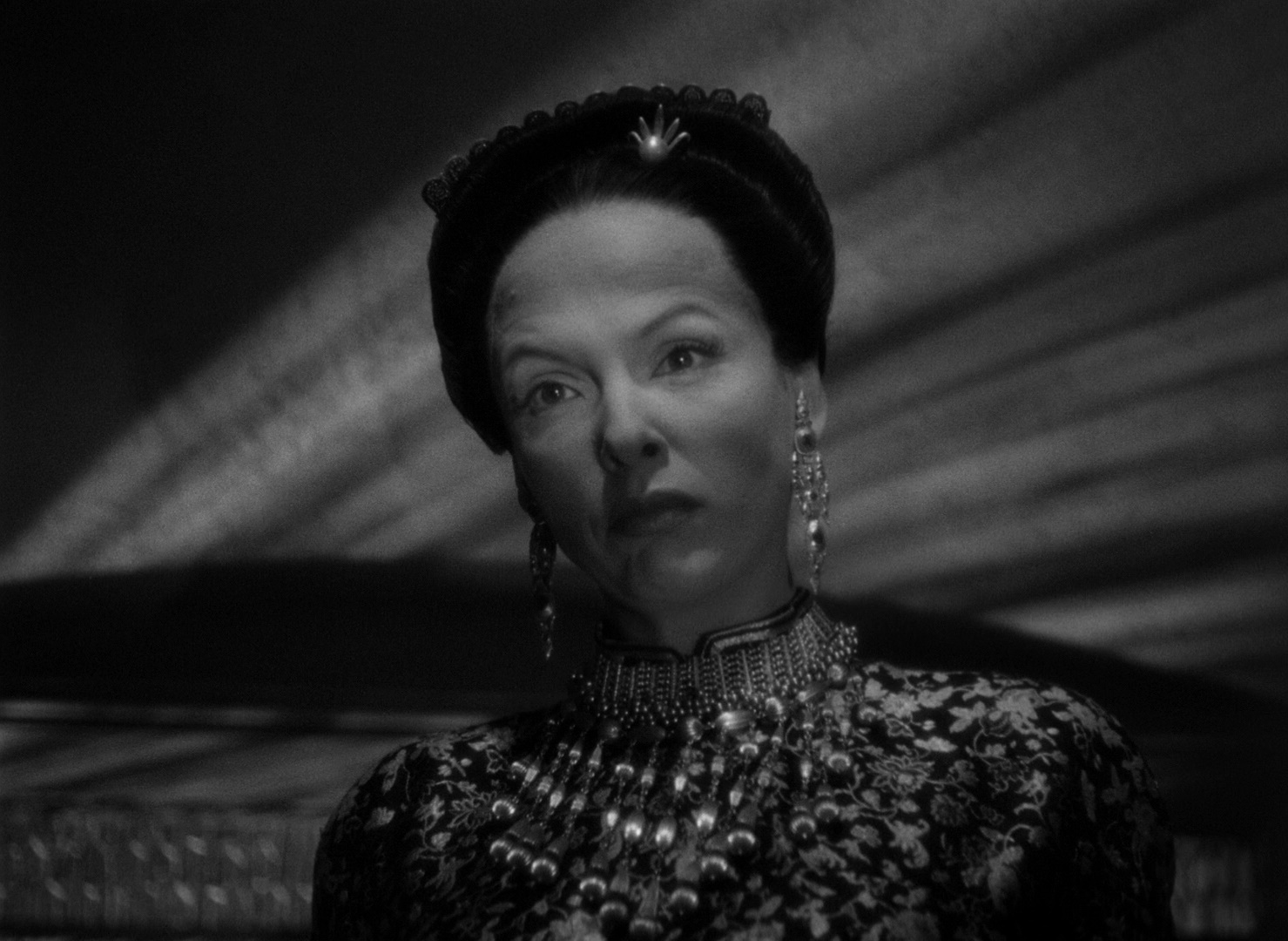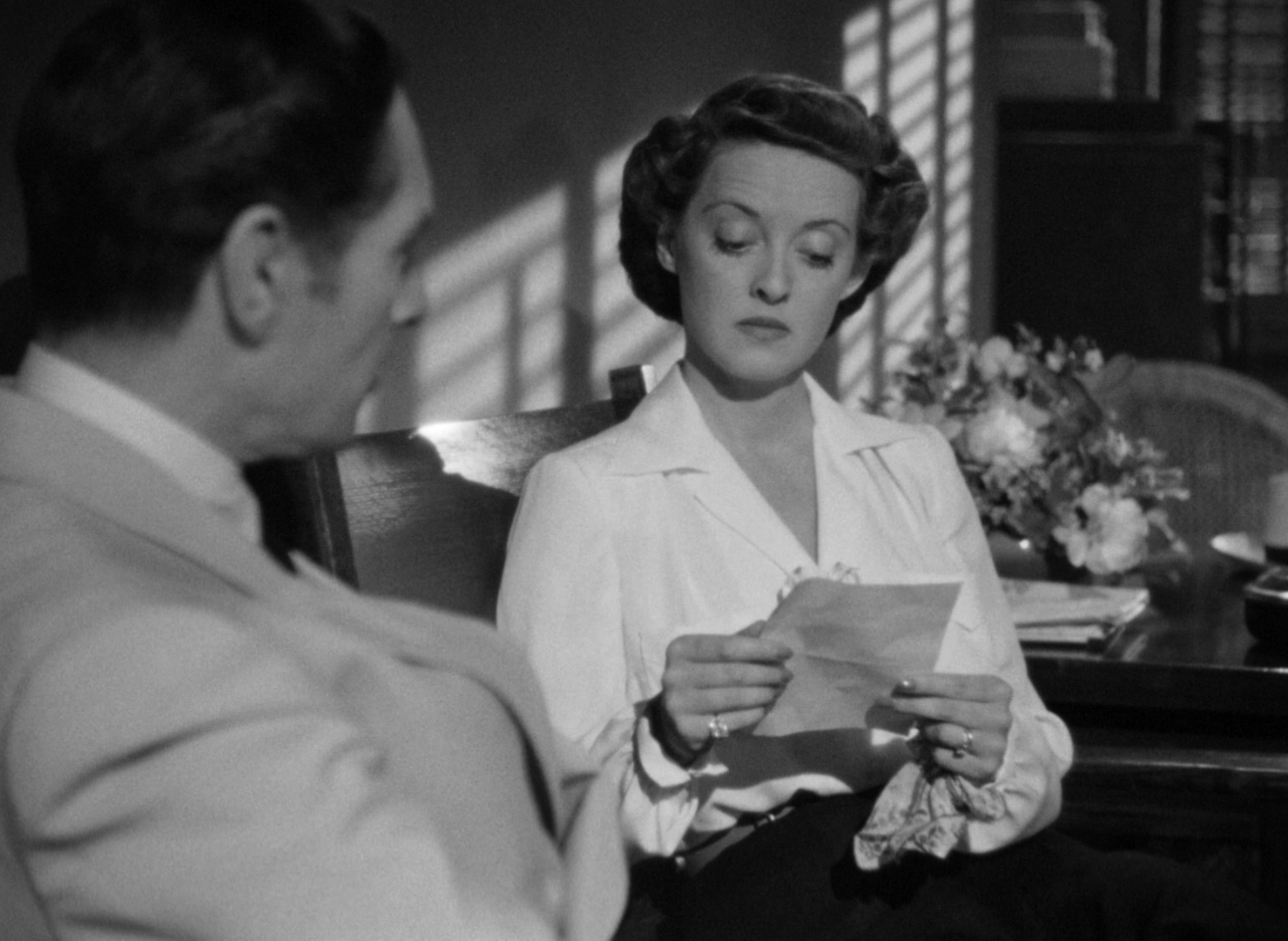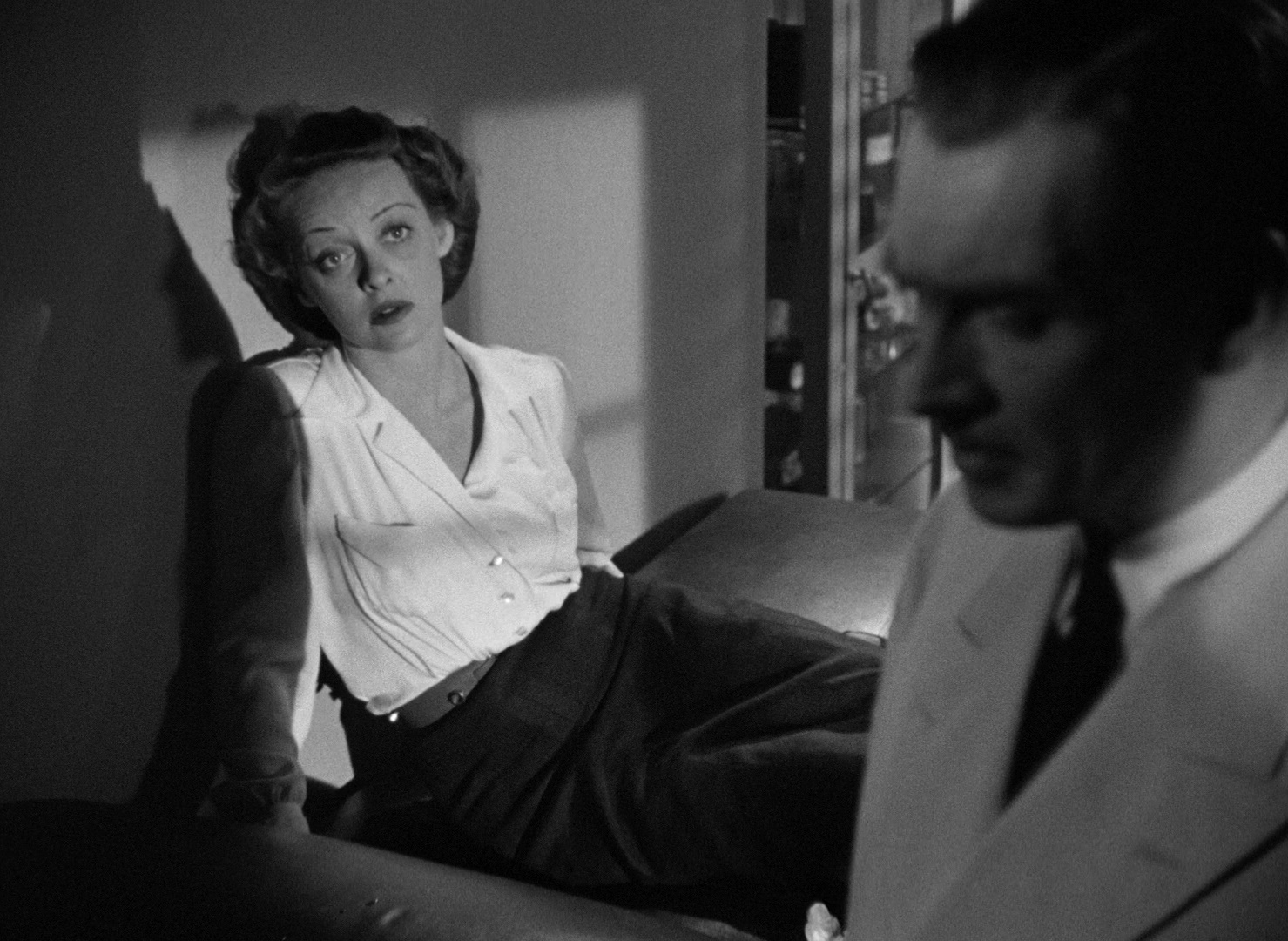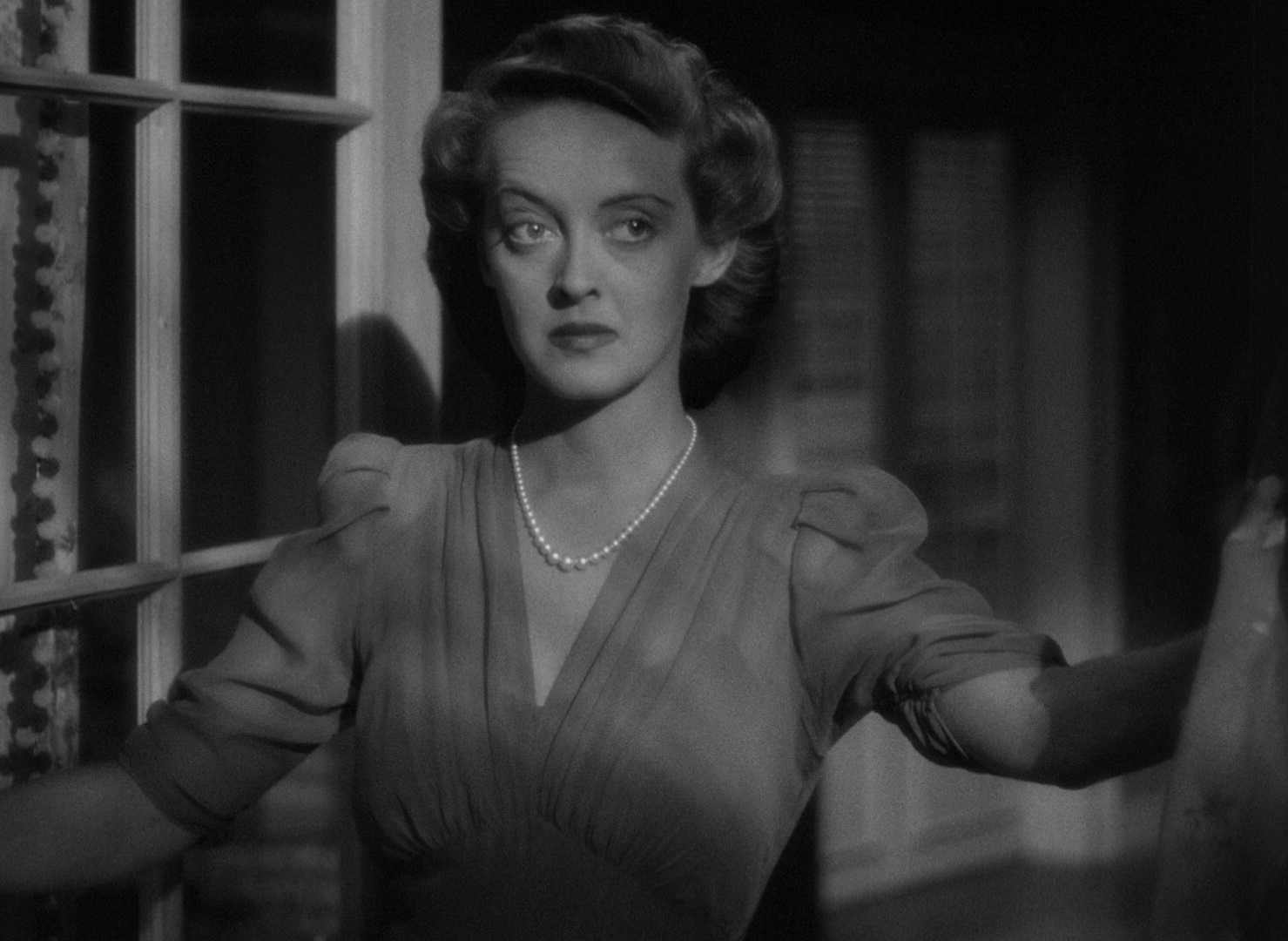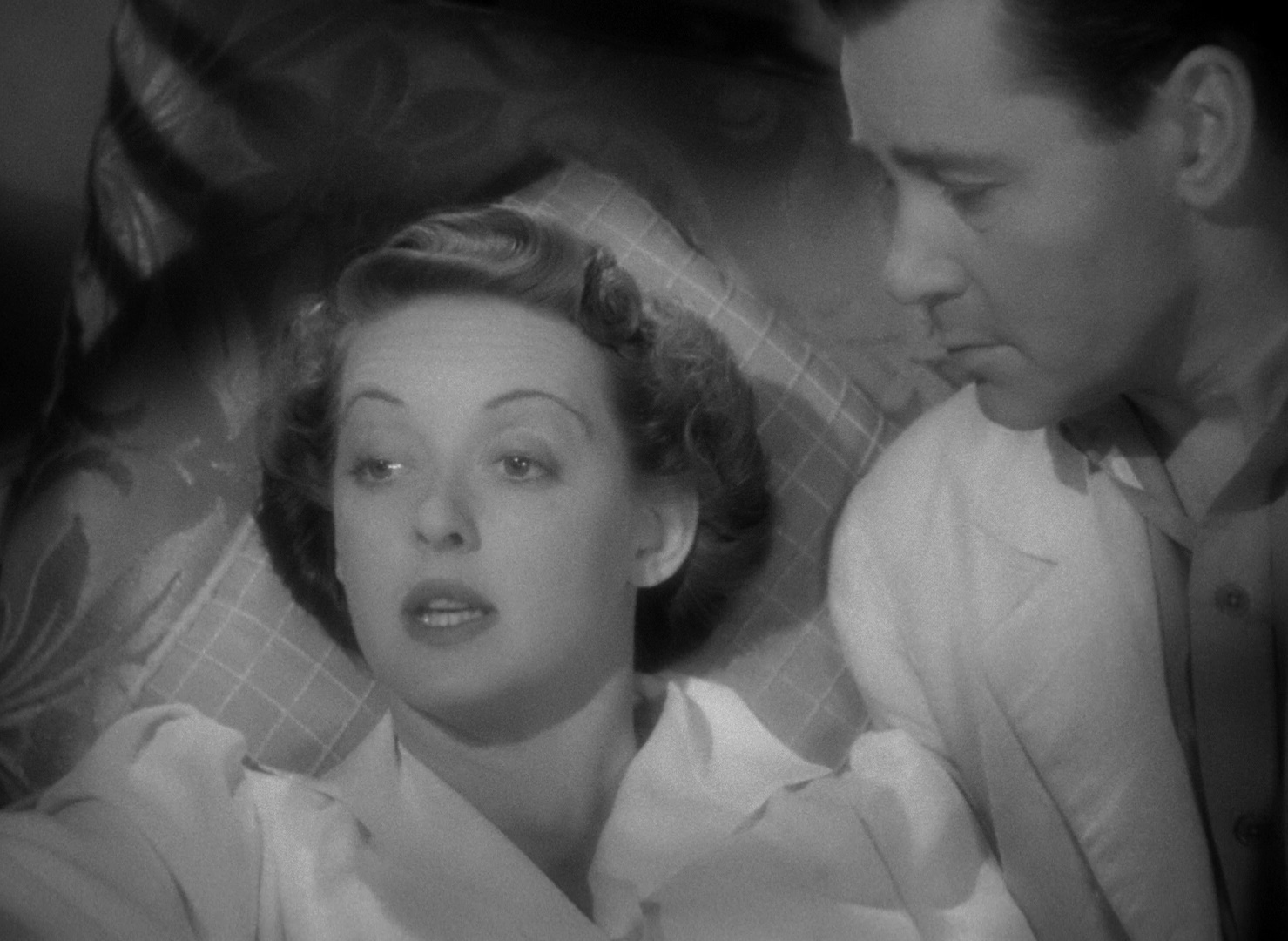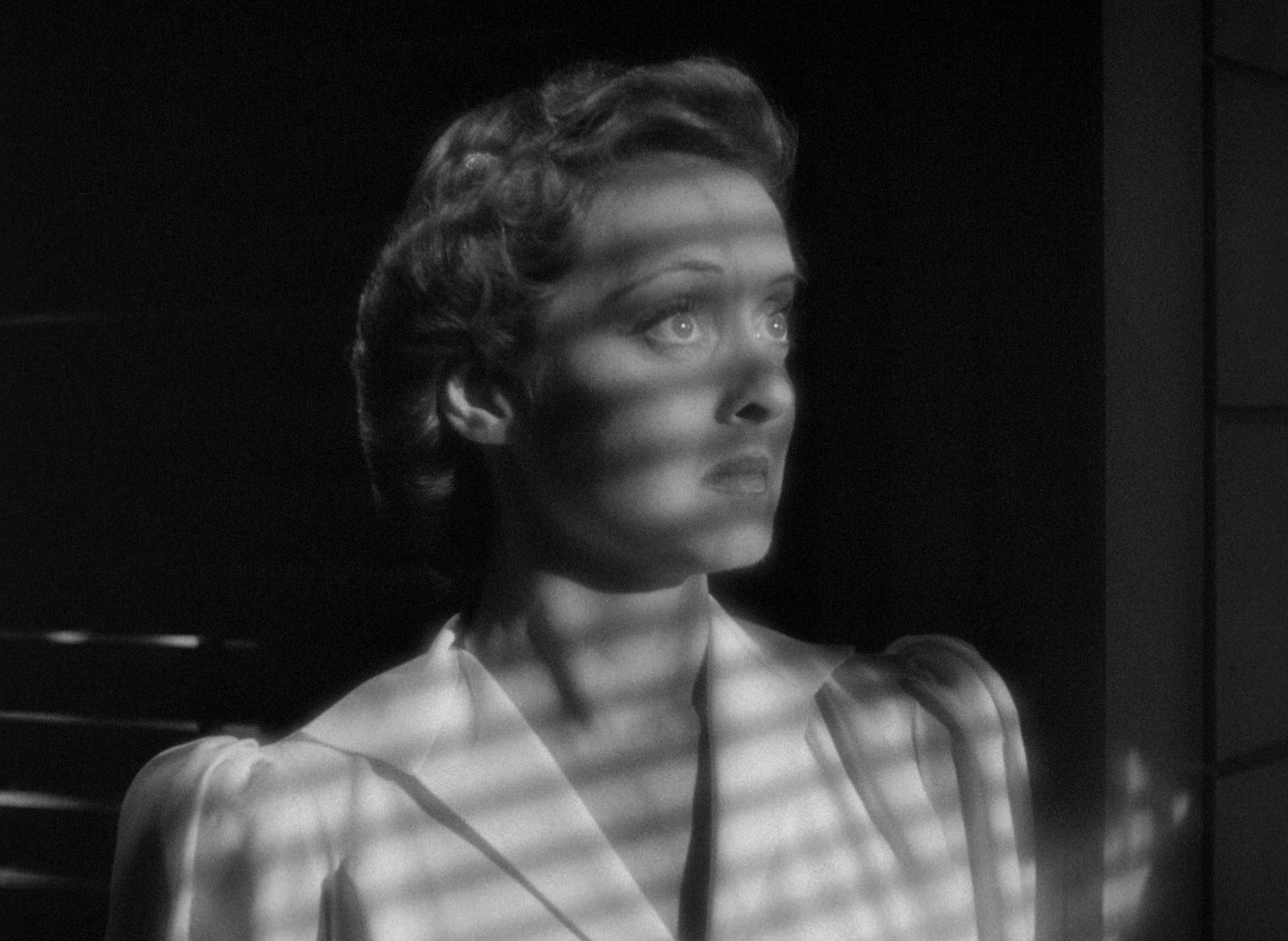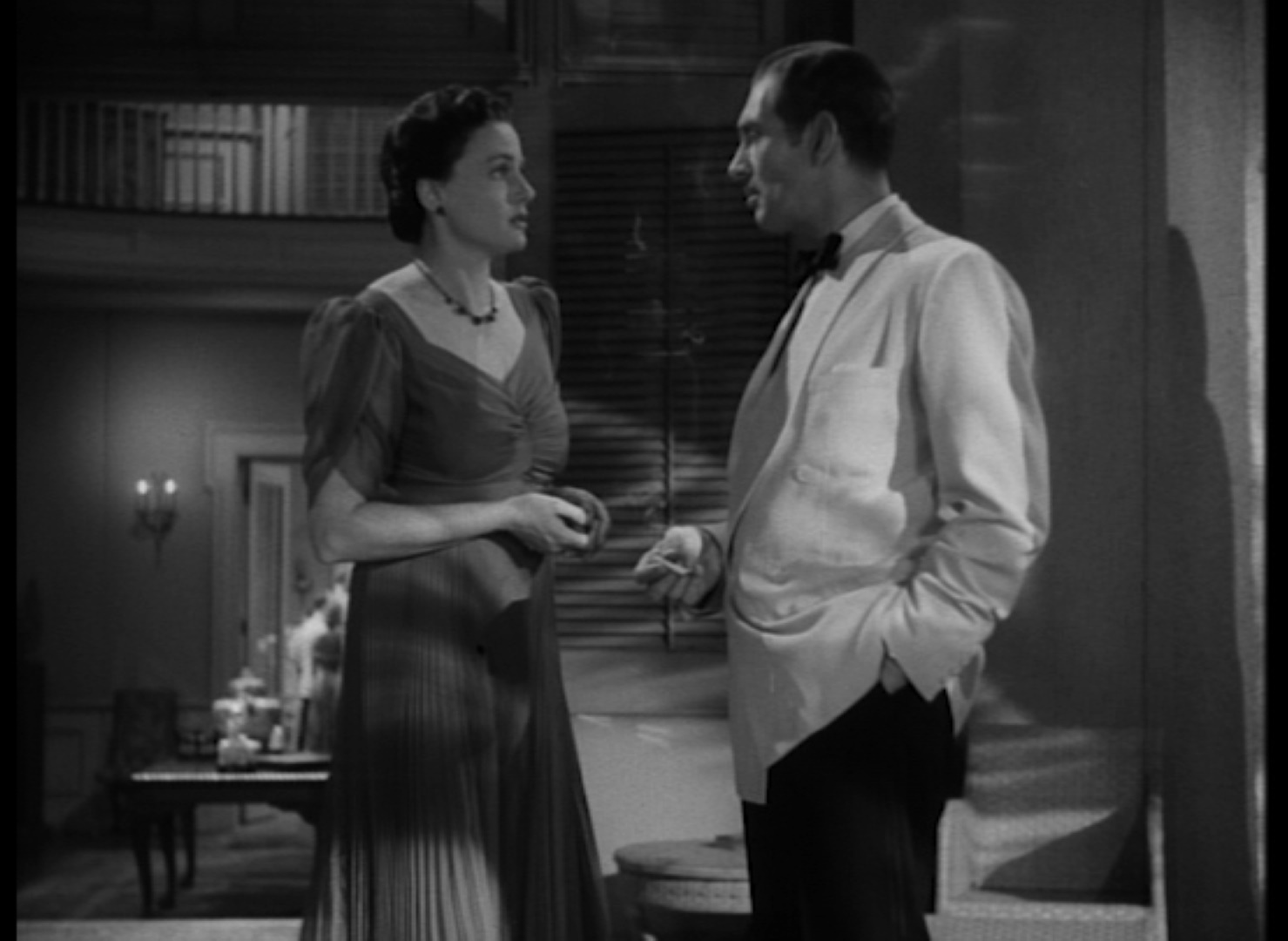| Reviews & Columns |
|
Reviews DVD TV on DVD Blu-ray 4K UHD International DVDs In Theaters Reviews by Studio Video Games Features Collector Series DVDs Easter Egg Database Interviews DVD Talk Radio Feature Articles Columns Anime Talk DVD Savant Horror DVDs The M.O.D. Squad Art House HD Talk Silent DVD
|
DVD Talk Forum |
|
|
| Resources |
|
DVD Price Search Customer Service #'s RCE Info Links |
|
Columns
|
|
|
Letter, The
The story told by Leslie Crosbie (Bette Davis) is accepted without reservation. Her husband Robert (Herbert Marshall) believes her. Attorney Howard Joyce (James Stephenson) believes her. We the audience – despite having seen her moments ago empty a revolver into Geoff Hammond, continuing to fire even when his lifeless body was sprawled across the dirt outside her bungalow – want to believe her. Mrs. Crosbie's is a tale that evokes great sympathy, fending off a drunken rapist in the dead of night. She's a respectable lady of privilege in British Malaya. She's able to recount every moment of the attack in horrifying detail, practically word-for-word no matter how many times she's questioned. The more that comes to light about Mr. Hammond – gambling dens! a mixed-race wife (Gale Sondergaard)! – the more certain it seems that Mrs. Crosbie's brief time in jail is a mere formality. An acquittal at trial is all but assured.
That is, until Mr. Joyce gets word about a letter: one supposedly written by Mrs. Crosbie to the man she'd gunned down. There's no definitive proof as yet that such a letter actually exists; all he's seen is a copy in someone else's handwriting. The supposed original is in the hands of the newly-widowed Mrs. Hammond, who might understandably be pursuing motives all her own. Mrs. Crosbie, once she comes to acknowledge its existence, dismisses the letter as a harmless misunderstanding. Still, this throws a spanner into the works. If the prosecution were to catch wind of this letter, there would all of a sudden be a potential motive. Elements of Mrs. Crosbie's account would no longer fit together quite so neatly. Even if the letter is as insubstantial as Mrs. Crosbie insists that it is, it would still be far more expedient to pay Mrs. Hammond the small fortune she's demanding and avoid such questions altogether. At great risk to his own standing, Mr. Joyce succeeds in retrieving the letter, but it ultimately comes at a cost far greater than the asking price of $10,000.
Athough The Letter is very much a product of its time with regards to its presentation of race, there's still much to be said for its exploration of the lines dividing the privileged and impoverished...between those of European and Asian descent. The first imagery we see is of workers on the Crosbies' rubber plantation, with perhaps more than a dozen Malay men sleeping inches away from one another in an unwalled hut. Moments later, Mrs. Crosbie steps out of her majestic bungalow, firing one shot after another into an unarmed man. And because she is British and blessed with the proper color skin, her story of defending herself from an attempted rape is accepted without question.
There's little indication that the establishment is corrupt, exactly, but there's no doubt that the criminal justice system in this stretch of world is...well, unjust. While awaiting trial, Mrs. Crosbie remains in jail, yet her treatment more closely resembles a welcomed guest rather than a prisoner. Despite facing justice in the Far East, British Imperialism is apparent at every turn. Without exception, the barristers, judges, and jurors alike are white men all. Among the greatest perceived sins of the late Mr. Hammond is that he deigned to marry a Eurasian woman. Despite a literal smoking gun, Mrs. Crosbie's racial purity and some degree of wealth are effectively the core of her legal defense. The more of the film that unfolds, the clearer it becomes that race forms the core of the central conflict as well.
Nevermind that urban decay is exchanged for a rubber plantation on the other side of the world. Murder, a morally compromised system, a beautiful young woman who weaponizes her femininity to manipulate the men around her: The Letter is unmistakeably Noir. This is furthered by the brilliant eyes of director William Wyler and cinematographer Tony Gaudio, whose talents are among those celebrated with the film's seven Academy Award nominations. Much of the film is set in the dead of night, with the moon serving as a silent judge overhead, exposing sins with her lunar glow. The stark contrast between light and shadow reflect both sides of Mrs. Crosbie: the bright purity she presents as a façade as well as the darkness she can't and won't acknowledge.
The second of three collaborations between Davis and Wyler, the power of The Letter hasn't diminished in the slightest over these past eight decades. Without so much as a word of dialogue or narration, the film effortlessly establishes its setting and socioracial dynamics purely through its visuals. We the audience are introduced to Mrs. Crosbie as she guns down Mr. Hammond, and although we ourselves witness the shooting, we're otherwise in much the same position as her husband and lawyer. Not having seen the moments prior to Mrs. Crosbie emptying the revolver, all we have is her word as to what transpired. The gliding first-person camera almost literally puts us in her shoes, retracing Mrs. Crosbie's steps as she weaves her story. We ourselves are being manipulated.
Though the acting throughout The Letter is unilaterally terrific, James Stephenson in particular is a standout. He delivers such a compelling performance – torn between his fervent belief in justice and his perceived duty to his friends – that it's astonishing to imagine that Jack Warner waffled on Stephenson being awarded the role. Indeed, his is such a strong turn that it would be honored the following year with an Academy Award nomination.
Bette Davis too earned a nod from the Academy for The Letter, though unlike her previous collaboration with Wyler, she did not take home a statuette. She is herself portraying an actress of sorts – as Mrs. Crosbie delivers decidedly distinct performances for whoever her audience happens to be at any given time – and this complex role demands someone of Davis' enormous talents. Despite our introduction, her Mrs. Crosbie effortlessly charms us as skillfully as she does most everyone around her. And although Mrs. Crosbie doesn't fully understand the process – having pled self-defense, she's puzzled why she has to suffer the indignity of a trial – she still succeeds in wresting as much control over the situation as can be managed. The film's power isn't placed in the contents of the letter or the truth of what transpired, but in the carefully crafted façade beginning to crumble: in the lifting of her intricate, pearl white veil.
With this stunning release of The Letter, Warner Archive has brought two of William Wyler's collaborations with Bette Davis to Blu-ray. (The third – The Little Foxes – is currently streaming on the Criterion Channel alongside Jezebel and The Letter, and a physical release hopefully isn't far behind.) Although a more extensive selection of extras would've been appreciated, what Warner Archive has offered here is still more than respectable, especially given the spectacular presentation befitting such an enduring, masterfully crafted film. Highly Recommended.
Video
Remastered earlier this year, Warner Archive's high definition presentation of The Letter is nothing short of extraordinary. From its very first frame, the 1.37:1 image is strikingly clean and crisp. The image does, of course, soften during the diffused closeups of Bette Davis, and there's no mistaking when an optical transition is soon to follow, but otherwise, I can't help but be struck by the detail and clarity so often on display.
The Letter's fine filmic texture is reproduced beautifully, aided in no small part by its AVC encode's higher than average bitrate. There's no trace of wear or damage, and the film has clearly been remastered with such care that there are no artifacts from automated scratch removal or heavy-handed noise reduction. The interplay between light and shadow consistently impresses, whether it's moonlight beaming onto Mrs. Crosbie through plantation shutters or clouds breaking to reveal a corpse on the ground.
This outstanding presentation of The Letter arrives on a dual-layer Blu-ray disc at the film's original Academy standard aspect ratio.
Audio
I couldn't be more thrilled with The Letter's lossless audio, presented here in 24-bit, two-channel mono. At no point does this dazzlingly clean DTS-HD Master Audio soundtrack suffer any sign of strain, nor is it marred by intrusive background noise nor any other manner of abberation. Every last line can be readily discerned, and the Academy Award-nominated score by Max Steiner is reproduced adeptly as well. For those who don't have the time or inclination to listen to the brief excerpt below, I'll just say that as high as my expectations were for the aural end of this presentation, The Letter easily exceeds them.
Also included is a set of English (SDH) subtitles.
Extras
- Alternate Ending (10 min.; SD): The centerpiece of The Letter's extras is this alternate ending. Though the broad strokes remain largely the same, the differences can be staggering. Most notably, the last we see of Mr. Crosbie here is at the bar; there is no equivalent of Robert's subsequent bedroom conversation with his wife. It's difficult to discuss certain points without spoiling things for those who haven't yet experienced either ending, but suffice it to say that the final shot of this version is less grand yet more thematically appropriate.
I'm not quite certain which ending I prefer. The unresolved despair in this alternate version is impactful, and yet I miss Marshall and Davis' additional performances from the theatrical release. I'm thankful to see this carried over from the earlier DVD edition, and the presentation – though limited to standard definition – is respectable as well. A screenshot from a brief exchange excised from the final cut is provided below.
- Lux Radio Theatre Broadcasts (120 min.): It would've been appreciated to see the pre-Code production of The Letter – issued on DVD by Warner Archive back in 2011 – included here. While that isn't in the cards, the label has provided the next best thing: two performances of The Letter by Bette Davis and Herbert Marshall, as part of the Lux Radio Theatre series. Produced and hosted by Cecil B. DeMille, these radio plays were recorded three years apart, with the first broadcast on April 21st, 1941 and the second following on March 6th, 1944. James Stephenson reprises the role of Howard Joyce in the initial broadcast, just a few months before sadly passing away. Vincent Price – in the first of a fair number of performances on the program – stands in for the the 1944 production.
- Trailer (2 min.; HD): The last of The Letter's special features is a high definition theatrical trailer.
The Final Word
It's been a banner year for Bette Davis on Blu-ray, with Criterion adding Now, Voyager and All About Eve to their storied collection as well as Warner Archive lavishing Jezebel with an outstanding special edition release. And though the 'Special Features' list on The Letter's packaging may not boast as many bulletpoints as the other three, its Blu-ray release is in all other respects every bit as outstanding. From its stunning proto-noir cinematography to its searing lead performances to Warner Archive's phenomenal remastering, this edition of The Letter could never come anything less than Highly Recommended.
|
| Popular Reviews |
| Sponsored Links |
|
|
| Sponsored Links |
|
|
| Release List | Reviews | Shop | Newsletter | Forum | DVD Giveaways | Blu-Ray | Advertise |
|
Copyright 2024 DVDTalk.com All Rights Reserved. Legal Info, Privacy Policy, Terms of Use,
Manage Preferences,
Your Privacy Choices | |||||||









